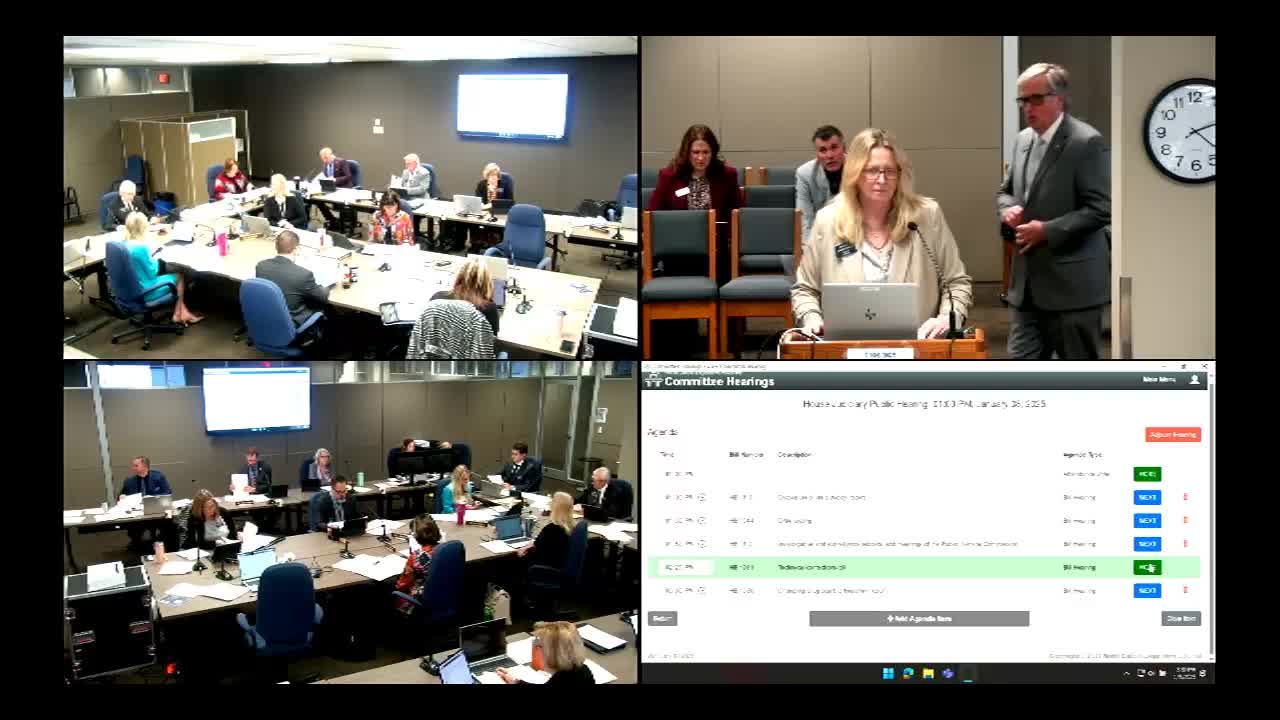Article not found
This article is no longer available. But don't worry—we've gathered other articles that discuss the same topic.
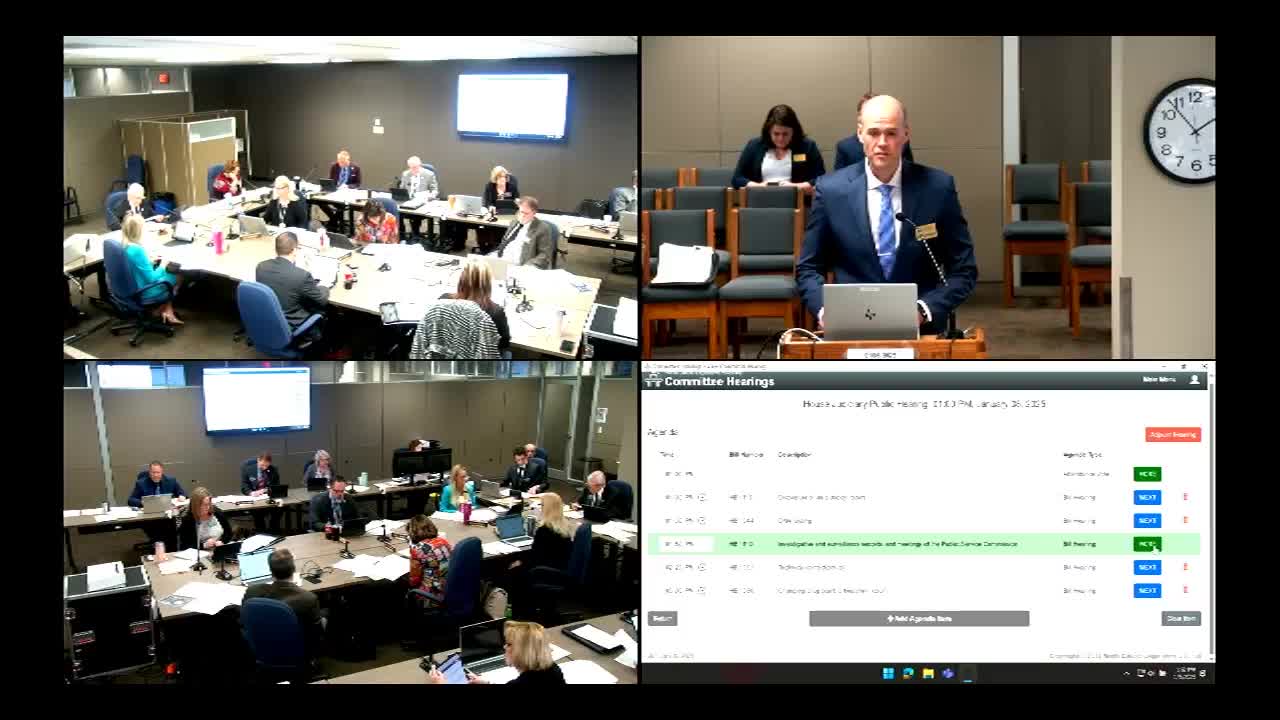
Public Service Commission seeks limited confidentiality for rail safety investigation records
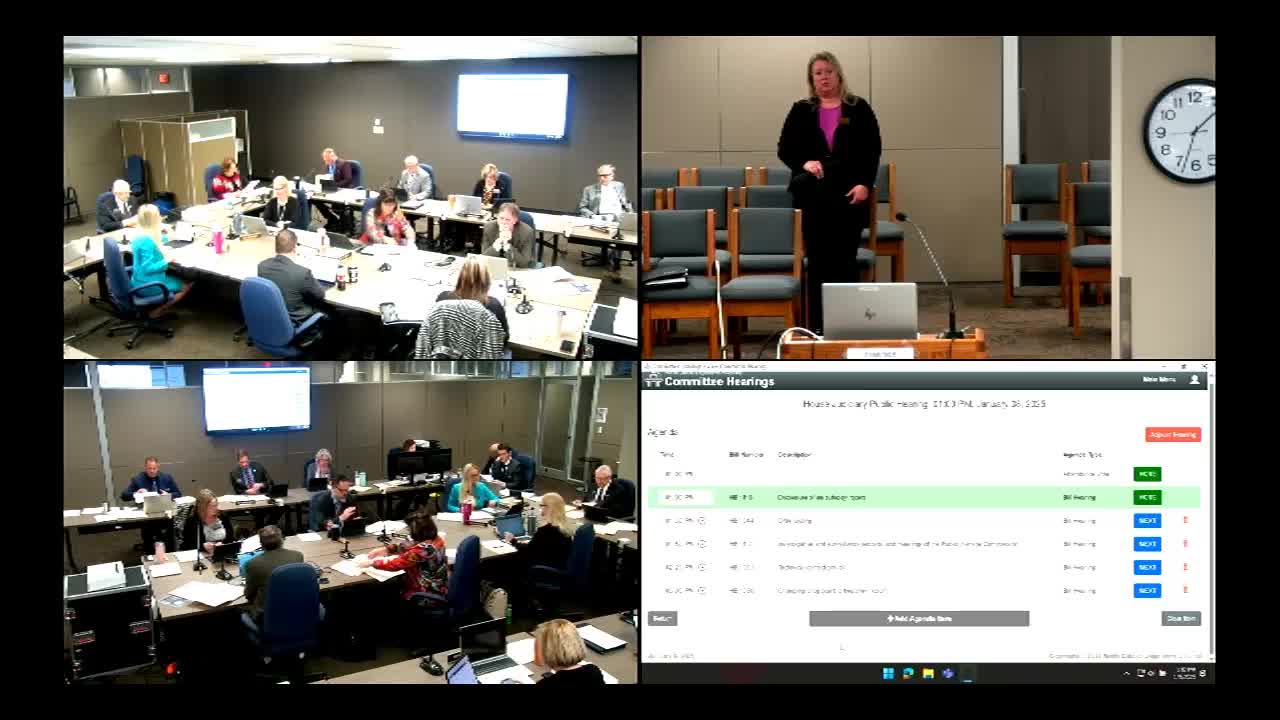
Attorney general's office seeks to let correctional officers collect DNA swabs for state database
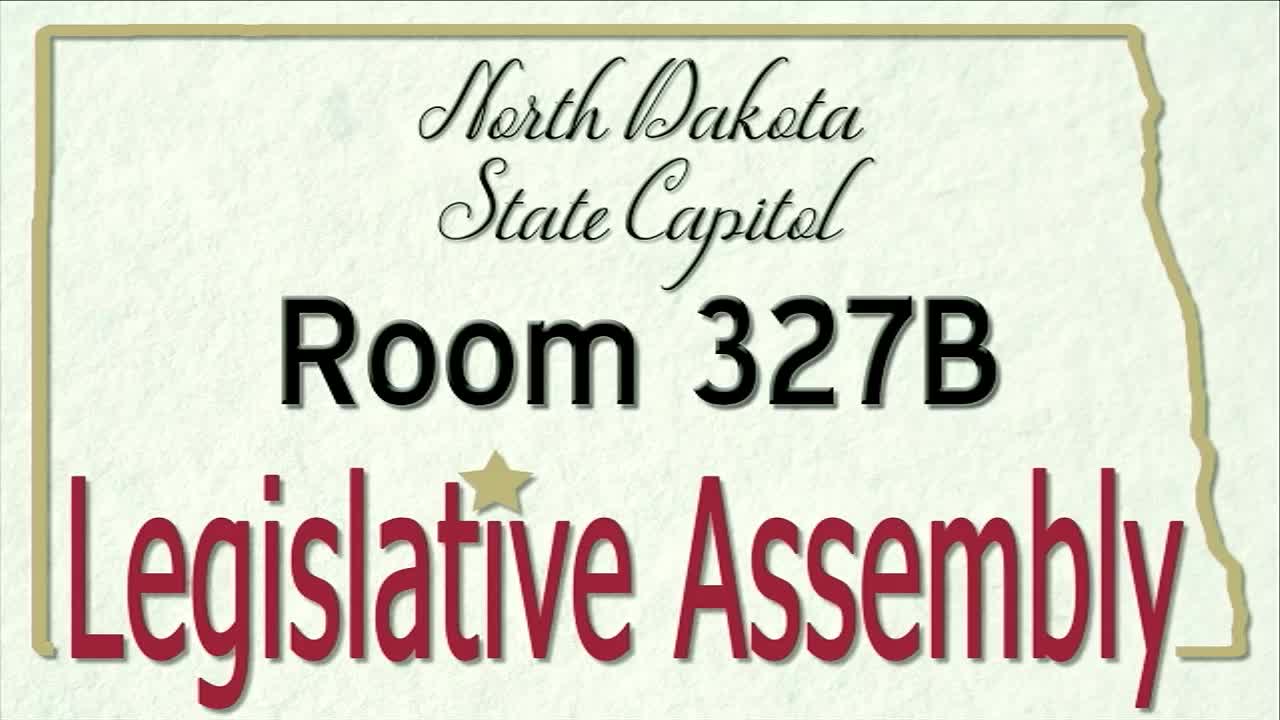
DOCR seeks direct access to autopsy reports for jail inspections
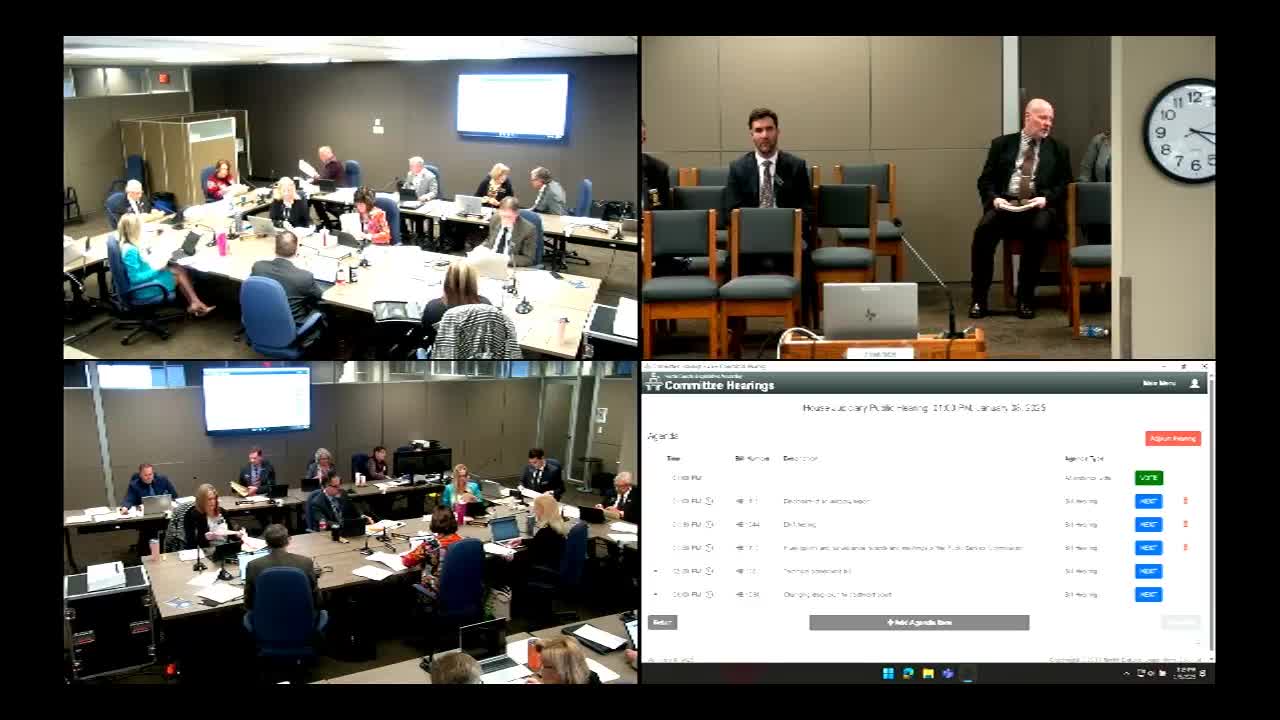
Committee approves bill to offer juror counseling after traumatic trials
